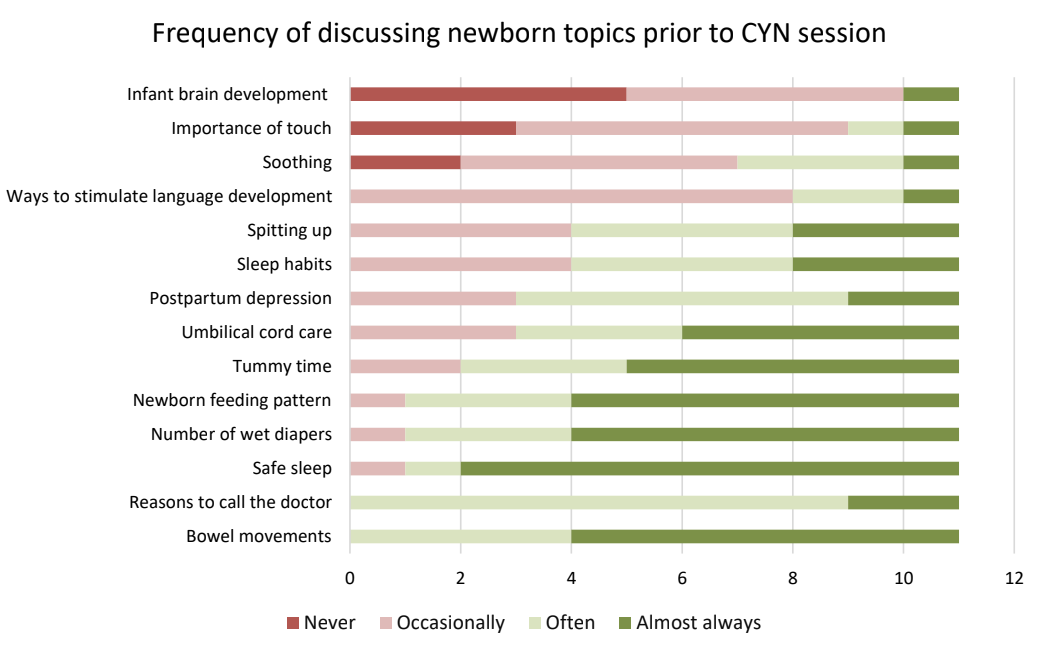Newborn Care
Session: Newborn Care
210 - Caring for Your Newborn: Repurposing a parent-facing video as a tool to train residents in promoting positive parenting during the newborn discharge talk
Friday, May 3, 2024
5:15 PM - 7:15 PM ET
Poster Number: 210
Publication Number: 210.423
Publication Number: 210.423

Brittany M. Wenger, MD (she/her/hers)
Pediatrics Resident
Icahn School of Medicine at Mount Sinai
New York, New York, United States
Presenting Author(s)
Background: There are over one million nerve connections made every second in the newborn brain. To optimize this developmentally rich period, The Caring for Your Newborn (CYN) video features providers using family-centered language to explain common newborn topics. Residents deliver similar medical information during newborn discharge talks in academic hospitals, often with little faculty oversight. These talks represent an untapped opportunity to meet the AAP’s call for universal promotion of safe, stable, and nurturing relationships. Educating residents on ways to weave medical advice with strategies that promote early development, as is modeled in the CYN video, has the potential to improve resident communication with families and promote positive parenting from birth.
Objective: This study investigates the use of a parent-facing video (CYN) to educate residents on how to give a newborn discharge talk, including a focus on topics that promote early development.
Design/Methods: This inter-institutional study invites residents to group viewings of the CYN video followed by discussion and role-play.
Participants completed a survey before and after the session about their experience in giving the discharge talk, their practice, and their confidence in discussing various newborn topics. We used paired t-tests to evaluate change in confidence for individual participants before and after viewing.
Results: 37 residents attended the educational sessions. 26 submitted the pre-survey and 24 submitted the post-survey. The majority (n=18, 69%) of residents were interns. Over half of pre-survey responders (n=14, 54%) had never given a newborn discharge talk. Of those who had (n=12), only 1reported often or almost always discussing infant brain development (Figure 1).
After viewing the CYN video, regardless of previous experience, 87.5% of residents (n=21) would recommend it to colleagues as an educational tool. Among participants who self-reported their confidence level before and after viewing the video (n=10), increases in confidence were reported across all medical and developmental domains, with statistically significant changes (p < 0.05) in topics related to positive parenting including the importance of touch, ways to stimulate language development, promotion of brain development, and how to soothe (Table 1).
Conclusion(s): A standardized educational session using a repurposed parent-facing video like CYN can increase resident confidence in discussing newborn discharge topics, including promoting positive parenting and early childhood development which traditionally have not been part of these conversations.

.png)
